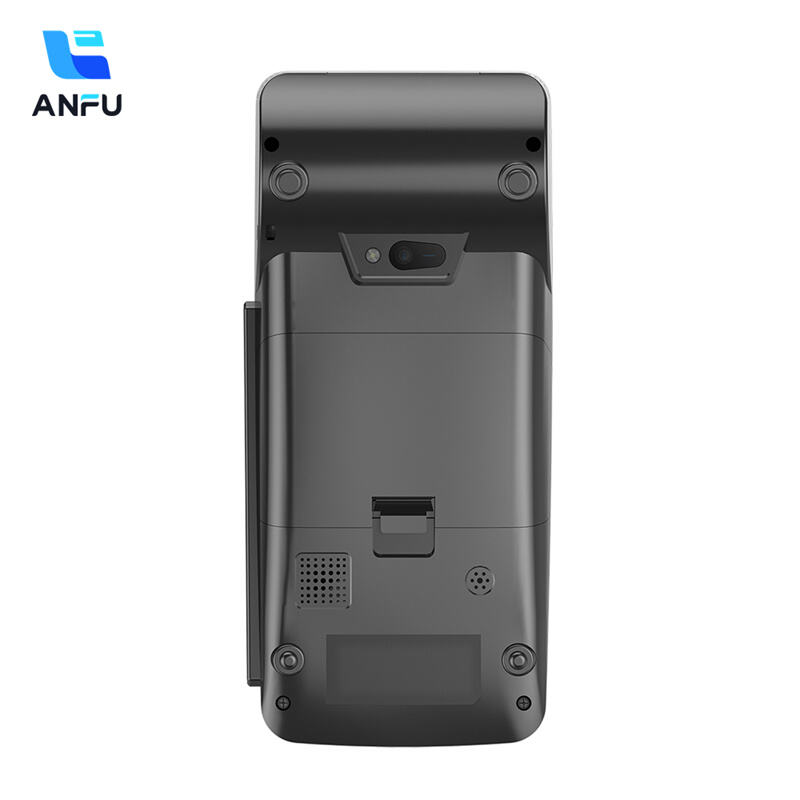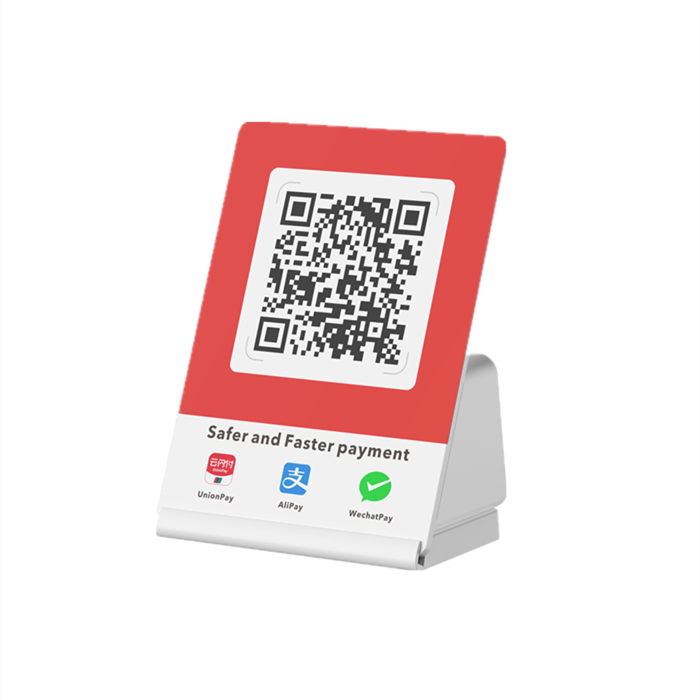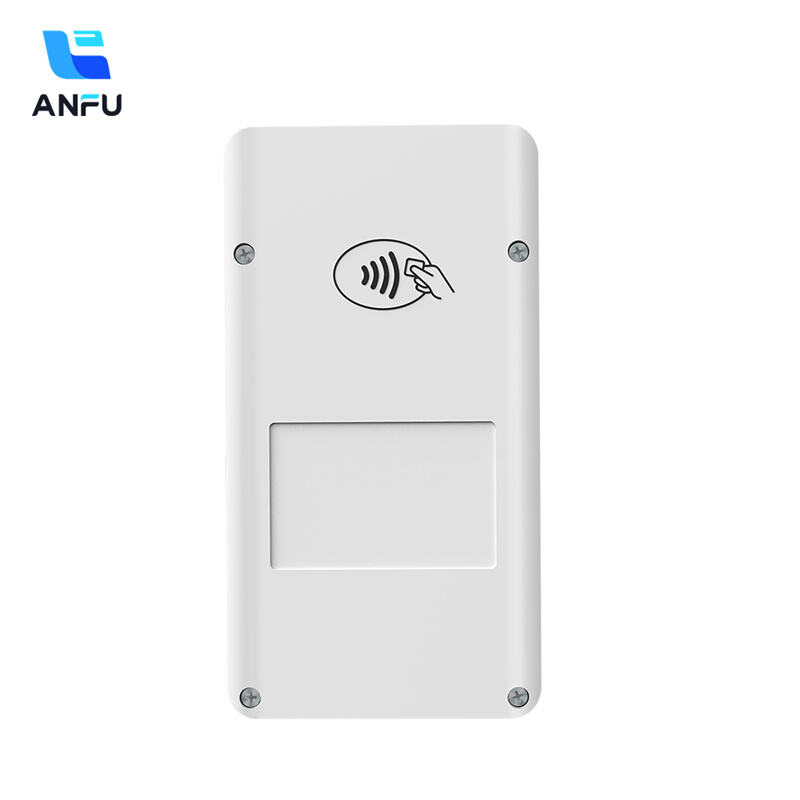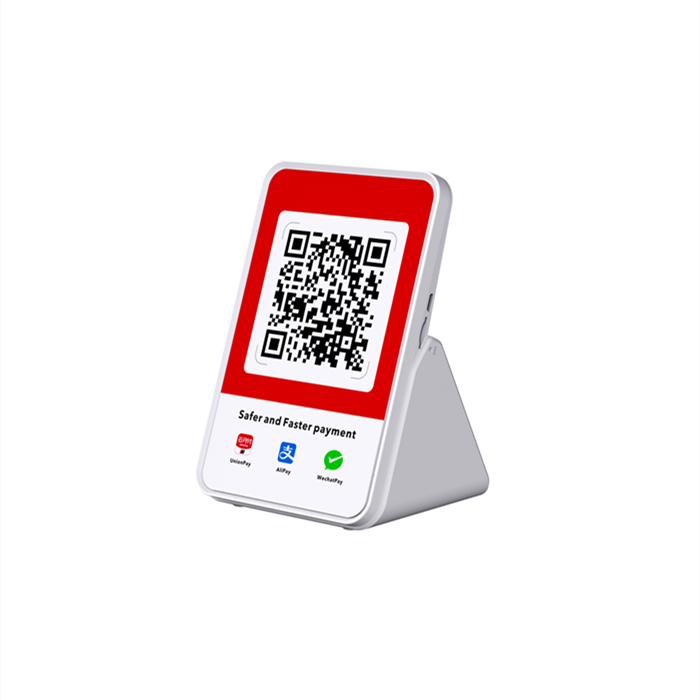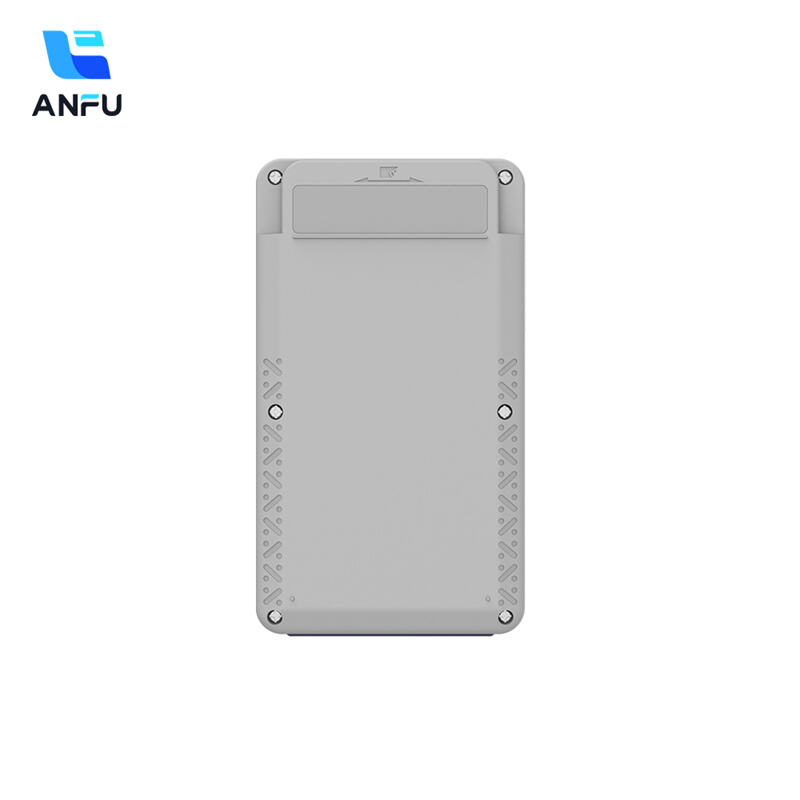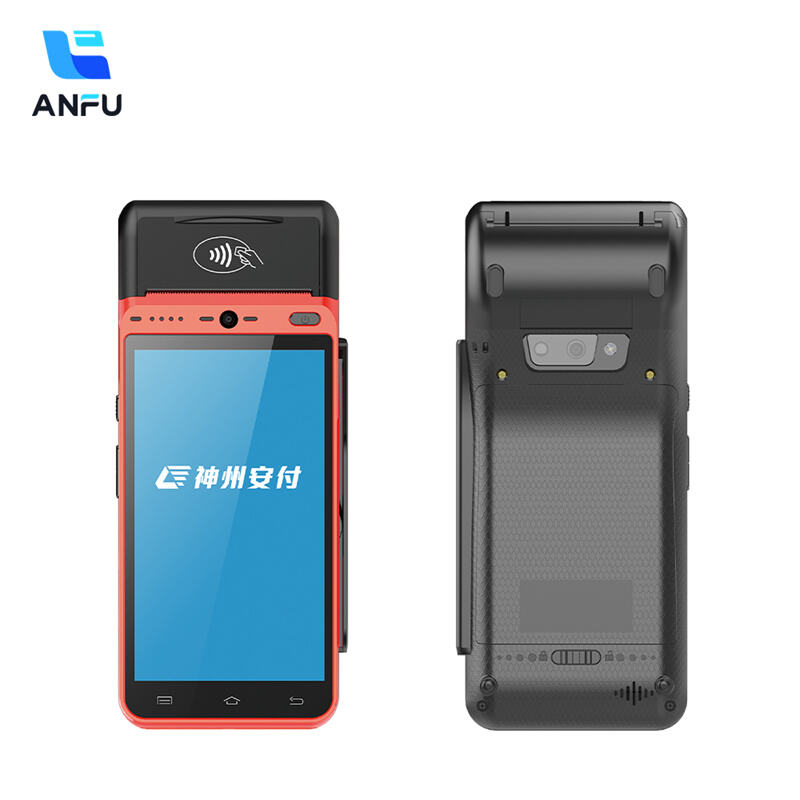Long - Battery - Life POS: Keep Your Business Running All Day
Why Long Battery Life is Critical for POS Systems
Ensuring Uninterrupted Business Operations
Having good battery life matters a lot for point-of-sale systems because when power goes out, businesses need to keep running smoothly. According to some research cited by Business News Daily, around 60 percent of companies actually lose money when their operations suddenly stop working. That's why having a solid backup power solution makes all the difference, particularly busy times when every second counts at checkout. The newer generation of POS terminals comes equipped with batteries that last much longer than before. These devices can handle transactions without plugging into wall outlets, which protects stores against losing sales during those unexpected blackouts we all dread.
Mobility Advantages for On-the-Go Services
POS machines that can run all day without charging give businesses real mobility benefits, making service much faster in places where things move quickly like cafes and shops. The ability to process payments anywhere actually makes customers happier and creates chances to sell more products since staff aren't stuck at registers anymore. According to some market research, stores that switch to mobile payment systems see their customer satisfaction scores jump by around 30 percent (Retail Consultancy Report). Restaurant servers can now take orders right at tables while retail workers help customers find items and complete purchases without needing to return to checkout counters.
Reducing Downtime Costs
One major benefit of getting POS systems with good battery life is cutting down on those costly downtimes. When a system dies because its batteries run out, businesses literally lose money fast. Some studies indicate that downtime can cost around $5,600 every single minute depending on what kind of business we're talking about. That's why having dependable power sources matters so much. Smart Android based POS terminals reduce how often they need charging, which means fewer interruptions during busy hours. Retailers save money over time since operations don't get disrupted as frequently. Plus, customers aren't left waiting while staff scramble to find backup solutions or recharge devices mid-sale.
Key Features of High-Performance POS Terminals
Smart Android POS Systems for Seamless Integration
Android based point of sale systems are changing how businesses operate in restaurants, cafes, and shops across the country. These modern devices work well with lots of different apps that help streamline daily tasks for staff members. The Android OS inside these terminals makes transactions happen fast while keeping track of sales information without any hiccups. Customers don't have to wait around as long anymore since payments go through quickly. What's really helpful though is when these systems connect to online storage solutions. Business owners can then check sales numbers随时 (anytime) and keep tabs on what products need restocking. This kind of visibility gives small businesses an advantage over competitors who still rely on older technology.
Durability in High-Traffic Environments
POS terminals built for high performance aren't just regular machines they're made to handle all the wear and tear from busy places where people constantly come and go. These units typically have tough plastic casings that resist impacts plus water resistant coatings so they keep working even when things get hectic around them. The durability factor matters a lot in reality. Industry insiders often mention that good quality terminals can stick around about twice as long as cheaper alternatives before needing replacement. For restaurants, retail stores, and other operations where sales happen non stop throughout the day, having reliable hardware means fewer interruptions and less downtime during peak hours when every second counts.
Compact Design of Mini POS Machines
More and more businesses that struggle with limited space are turning to mini POS machines because they take up so little room while still getting the job done right. These little guys pack in all the necessary functions but don't eat up valuable countertop real estate, which is why they work great in tiny shops or pop-up stands where every inch counts. What makes these mini systems really stand out is how portable they are. Staff can grab them and move them around store easily when needed, no wrestling with bulky equipment required. Plus, the sleek look of these machines actually improves the shopping atmosphere for customers. Many business owners find themselves drawn to these compact systems since they offer practical benefits without looking cheap or unprofessional on the sales floor.
Best Practices to Extend POS Battery Life
Ensuring longer battery life for POS systems can greatly influence operational efficiency and cost-effectiveness. By adopting the following best practices, businesses can maximize the durability and performance of their POS systems.
Regular Software and Hardware Maintenance
Taking care of point-of-sale systems regularly makes a big difference for battery life and how well the devices work overall. When software and firmware stay current, the terminals run smoother and waste less power unnecessarily. Clean hardware matters too – dust buildup in those little connection ports can actually sap energy over time. Most manuals suggest sticking to regular maintenance routines extends battery life around 30%, which we've seen ourselves in our stores. For retailers, this means fewer interruptions during busy hours and less downtime waiting for batteries to recharge when they shouldn't need it so often anyway.
Optimizing Power Settings for Efficiency
Changing how we set power options makes batteries last much longer than default settings allow. Lowering screen brightness when possible and making sure screens turn off faster after inactivity helps save power. Many businesses have started using power saving modes whenever there's not much going on, which cuts down on battery drain quite a bit. According to some recent studies, companies that tweak these settings often see around 40% better battery life from their equipment. For retail operations relying on point of sale systems all day long, getting those extra hours out of each charge means fewer times running back to plug things in mid-sale.
Avoiding Common Charging Mistakes
Getting the hang of proper charging methods really matters when it comes to keeping batteries healthy and avoiding early breakdowns. One big problem people run into is overcharging, which slowly eats away at battery quality over time. That's why teaching staff about right charging habits makes such a difference in the long run. Stick with original chargers from the get go since generic ones might not fit properly or cause problems down the road like short circuits that actually harm the battery itself. When companies stick to what manufacturers recommend plus follow standard industry tips, they tend to see much better battery life spans. This means less frequent replacements and POS systems that keep running smoothly without unexpected downtime.
Choosing the Right Handheld POS Machine
Prioritizing Battery Life Specifications
When picking out a handheld POS system, battery life should be near the top of the list. These devices get constant action in most retail settings, so running out mid-day can really mess things up. Look for models with swappable batteries if possible they make it easier to keep going without waiting for charges. Most experts suggest going for something that lasts around 10 hours straight, though smaller stores might need less while big box retailers definitely want more. Getting this right makes a huge difference in day to day operations, keeping staff happy and customers served even when business picks up unexpectedly.
Evaluating Durability for Restaurant Use
The restaurant business throws around some pretty tough challenges for point of sale equipment. Food splatters, dropped orders, and constant movement mean these devices need to survive all sorts of rough treatment. Looking at handheld POS options? Restaurant owners should really focus on finding ones with solid Ingress Protection ratings. These numbers tell us how well a device can handle water exposure and dust buildup, which matters a lot when working near open kitchens or busy bars. Industry data reveals something interesting too. Machines built specifically for restaurant environments tend to last longer without breaking down compared to regular versions. We're talking about roughly 25% fewer failures over time, which makes a big difference when trying to keep operations running smoothly day after day.
Compatibility with Android-Based Systems
Getting Android systems to play nice together matters a lot when bringing different apps and services into one workflow. Handheld point-of-sale devices that mesh well with Android POS applications really boost what these systems can do and make them easier for staff to use day to day. When there's good compatibility between hardware and software, it cuts down on headaches during setup so businesses can get advanced features running without too much hassle. Market research shows more and more retailers are moving towards Android based solutions for their checkout needs. For shops wanting better efficiency at the counter while keeping customers happy, making sure everything works smoothly with Android isn't just important anymore it's becoming essential for staying competitive in today's fast paced retail environment.
Future Trends in POS Battery Technology
Innovations in Energy-Efficient Hardware
POS technology looks set to make big strides in battery longevity thanks to improvements in hardware that consume less power. Sustainability has become a major concern across industries, pushing manufacturers to find ways to cut down carbon emissions without sacrificing performance. Some companies working on next generation systems claim they might actually double battery life over the coming years according to recent market reports. When these upgrades start appearing in modern smart terminals, stores will see longer operating times between charges plus lower electricity bills overall. While not every business may need all these green features right away, the shift toward energy efficiency definitely makes sense for long term operations costs and environmental impact alike.
Solar-Powered POS Terminals
Solar powered point of sale terminals are making waves in the quest for greener tech options since they cut down on dependency on regular wall outlets and batteries. For folks running operations outside the norm like mobile eateries and sidewalk stands, this matters a lot because keeping electricity going consistently is practically impossible at times. The sun becomes their power source essentially, so even if they're parked somewhere without access to grid power, transactions keep happening smoothly. Market research indicates that demand for these solar enabled payment systems will skyrocket over the next few years as small business owners get serious about cutting carbon footprints. While saving money on electricity bills is definitely appealing, many operators find that customers actually appreciate seeing them go green too, which creates goodwill that pays off in unexpected ways sometimes.
Recommended Products
Hot News
-
Smart Card 2019
2024-01-23
-
Trustech 2019
2024-01-12
-
Futurecom 2019
2024-01-12
-
Seamless Payments Asia 2020
2024-01-12
-
Seamless Middle East 2022
2024-01-12

 EN
EN
 AR
AR
 BG
BG
 CS
CS
 DA
DA
 NL
NL
 FR
FR
 IT
IT
 JA
JA
 KO
KO
 PL
PL
 PT
PT
 RU
RU
 ES
ES
 TL
TL
 ID
ID
 LT
LT
 UK
UK
 VI
VI
 HU
HU
 MT
MT
 TH
TH
 TR
TR
 FA
FA
 AF
AF
 MS
MS
 MK
MK
 HY
HY
 AZ
AZ
 KA
KA
 BN
BN
 BS
BS
 LO
LO
 MN
MN
 NE
NE
 ZU
ZU
 MY
MY
 KK
KK
 UZ
UZ
 KY
KY
